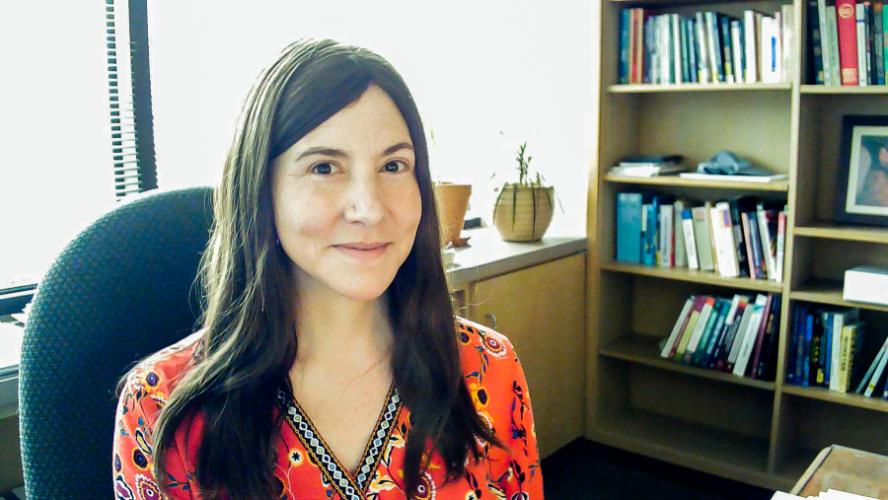NACOGDOCHES, Texas — Dr. Roslyn Fraser, associate professor of sociology in Stephen F. Austin State University’s Department of Anthropology, Geography and Sociology, has been named Fulbright Scholar for the 2024-25 academic year.
The Fulbright Program, the United States government’s flagship program for international educational and cultural exchange, selects university faculty members and professionals to conduct research, teach and produce artistic and professional projects in other countries in an effort to find solutions to challenges facing our world.
As a Fulbright Scholar, Fraser will spend 10 months beginning this August in Port Louis, Mauritius — an island in the Indian Ocean — to work on her research and teach graduate courses at the University of Technology, Mauritius.
“It is an honor to be selected to travel to another part of the world to represent our university, our country and the discipline of sociology,” Fraser said. “That level of recognition has real weight to it. It feels like being told ‘You’re doing good things. Keep it up.’”
Fraser’s research examines women’s international labor migration through a qualitative study of the experiences of Bangladeshi women working in the Mauritian garment sector. Fraser’s previous research studies have taken place in villages in rural Bangladesh, with a focus on women’s work and family dynamics as people emigrate abroad for work. The Fulbright Program will allow her to see the other side of workers’ experiences by traveling to a country where Bangladeshi workers are going as labor migrants.
“I first became interested in Mauritius after looking at some migration data out of Bangladesh,” Fraser said. “I noticed large waves of women migrating there for industrial jobs in clothing factories.”
Fraser’s fascination with cultural differences and immigration comes from stories of her parents immigrating to the United States from Australia four-and-a-half months before Fraser was born. Fraser said she learned a lot by seeing the world through their eyes.
Along with teaching graduate courses, Fraser also will help the host university develop their graduate school and serve as an advisor for a doctoral candidate during their studies.
“It is widely understood that PhD training in the United States is very rigorous, so universities in middle- and lower-income countries seeking to grow their own graduate studies like to collaborate with U.S. faculty members as they develop local programs,” she said.
Fraser credits a small list of female faculty mentors she’s worked with throughout the years for changing her perception of the Fulbright Program’s accessibility, which she thought of as obtainable only for Ivy League faculty members.
“I remember clearly a philosophy professor who took the time to sit down and explain the Fulbright to me and how the application worked,” Fraser said. “She made it feel attainable, despite how much work it would be. By the end of the conversation, I thought, ‘Oh! I can probably do this. Why not!’ If not for people like her and my other mentors, my life would look very different today.”
According to the Fulbright Scholar Program’s website, the program was established by Congress in 1946 to increase mutual understanding and support friendly and peaceful relations between people of the U.S. and those from other countries.
For more information about the Department of Anthropology, Geology and Sociology, visit the department's website.
ABOUT STEPHEN F. AUSTIN STATE UNIVERSITY
Stephen F. Austin State University, the newest member of The University of Texas System, began a century ago as a teachers’ college in Texas’ oldest town, Nacogdoches. Today, it has grown into a regional institution comprising six colleges — business, education, fine arts, forestry and agriculture, liberal and applied arts, and sciences and mathematics. Accredited by the Southern Association of Colleges and Schools, SFA enrolls approximately 11,000 students while providing the academic breadth of a state university with the personalized attention of a private school. The main campus encompasses 421 acres that include 37 academic facilities, nine residence halls, and 68 acres of recreational trails that wind through its six gardens. The university offers more than 80 bachelor’s degrees, more than 40 master’s degrees and four doctoral degrees covering more than 120 areas of study. Learn more at the SFA website.
 Axe ’Em, Jacks!
Axe ’Em, Jacks!
